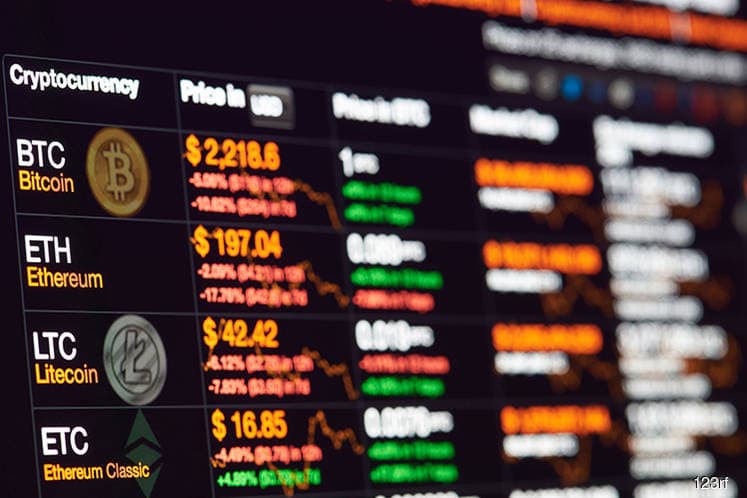
This article first appeared in The Edge Financial Daily on January 28, 2019
KUALA LUMPUR: Stakeholders of the Malaysian cryptocurrency space, by and large, welcome the regulations to be introduced by the Securities Commission Malaysia (SC) and Bank Negara Malaysia (BNM), as they view them as important ingredients for the further development of the industry.
Robo-advisory firm StashAway’s chief investment officer Freddy Lim, for one, said Malaysia’s move to introduce the regulations is good as it will help build trust in the industry, which will help it mature.
The possible implementation of certain standards for whitepapers of initial coin offerings (ICOs) and the imposition of certain investment thresholds for those that would like to participate in ICOs, are generally in line with securities law, he said.
Thailand took a similar path in regulating ICOs. It now requires companies to file a draft prospectus with the Securities and Exchange Commission Thailand and limits retail investors’ investment to 300,000 baht (about RM40,000) per person, per ICO.
“The treatment of digital assets as securities and the controls on cryptocurrency exchanges and ICOs are welcomed, as it will help Malaysia’s crypto industry mature. We will see better players coming up and less of the scams. This is important in building trust towards blockchain technology,” he told The Edge Financial Daily.
The development of the digital assets space in Malaysia can contribute to deeper capital markets, he said.
“Looking at Southeast Asia, Malaysia included, the financial markets are not as deep as it can be. The funds and financial instruments available in these markets are limited and investors’ participation could be greater than how it is currently,” he said.
He pointed to the example of the tokenising of assets, whereby the ownership of an asset is represented on a blockchain, allowing for fractional ownership of property, for example. This means investors would be able to own a fraction of the property, which means the amount required to invest in such assets would be lower.
“This would create greater access to investment for all and make illiquid assets — such as property — liquid,” explained Lim.
Finance Minister Lim Guan Eng announced the Capital Markets and Services (Prescription of Securities) (Digital Currency and Digital Token) Order on Jan 14, which came into force the following day.
Under the order, digital assets that meet certain criteria, such as the expectation of an appreciation in value of a certain token, would be treated as securities and hence fall under the purview of the SC.
Following that, the SC announced a transitional period of up to March 1 for digital asset platforms to continue to operate, though operators are not permitted to accept new investors and will only be allowed to facilitate the withdrawal or transfer of client assets.
The SC also imposed a freeze on all ICO activities and said no such activity can be conducted without the regulator’s prior authorisation. Ongoing ICOs must cease all activities and return all money or digital assets collected from investors.
When contacted, cryptocurrency exchanges in Malaysia refrained from commenting further on the recent developments. These players had previously expressed support for the regulation of the industry.
A source said a gag order has been placed on digital asset exchanges and potential ICO issuers for the time being.
In a recent note to clients, Luno Malaysia said it welcomes regulation and is confident it would help build greater trust in the industry and for digital asset exchanges.
“Importantly, it will also ensure that all cryptocurrency businesses have adequate standards in place for the protection of customers and their funds.
“Luno is excited about the opportunity to apply for a licence once the new regulations are in place. Doing so will get us another step closer to again accepting your Malaysian ringgit deposits and enabling more and more people to buy, store and learn about cryptocurrencies,” it said.
In an email interview last month, Luno country manager David Low explained to this paper that the company heavily invests in collaborations with financial institutions and regulators and that Luno self-regulates itself even in markets where it is not required by law to do so.
“Regulation will ultimately bring clarity and protection to businesses and consumers, so we are strongly in favour of it. We look forward to helping the SC and BNM make trading cryptocurrencies safer for all Malaysians,” he said.
Meanwhile, Malaysia Digital Economy Corp (MDEC) said the regulation of digital asset exchanges and ICOs allows for an additional fundraising channel for entrepreneurs and new businesses.
“MDEC welcomes the Ministry of Finance’s decision to regulate any form of digital asset exchanges or ICOs, which is bringing much-needed clarity to this nascent space.
“Furthermore, this progressive view of the potential of the blockchain industry is aligned with Malaysia’s Industry 4.0 aspirations, and will encourage an additional fundraising channel for entrepreneurs and new businesses,” it said, adding that it believes Malaysia has an opportunity to be competitive globally in the blockchain space.